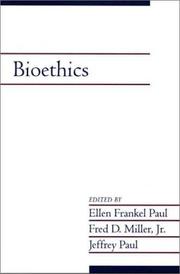| Listing 1 - 5 of 5 |
Sort by
|
Book
ISBN: 9780199593866 Year: 2015 Publisher: Oxford Oxford University Press
Abstract | Keywords | Export | Availability | Bookmark
 Loading...
Loading...Choose an application
- Reference Manager
- EndNote
- RefWorks (Direct export to RefWorks)
Book
ISBN: 9780521821674 9780521529143 9781139016100 Year: 2015 Volume: *19 Publisher: Cambridge Cambridge University Press
Abstract | Keywords | Export | Availability | Bookmark
 Loading...
Loading...Choose an application
- Reference Manager
- EndNote
- RefWorks (Direct export to RefWorks)
Book
ISBN: 1316146839 131614710X 1139016105 Year: 2015 Publisher: Cambridge : Cambridge University Press,
Abstract | Keywords | Export | Availability | Bookmark
 Loading...
Loading...Choose an application
- Reference Manager
- EndNote
- RefWorks (Direct export to RefWorks)
Revered for his contributions to empiricism, skepticism and ethics, David Hume remains one of the most important figures in the history of Western philosophy. His first and broadest work, A Treatise of Human Nature (1739-40), comprises three volumes, concerning the understanding, the passions and morals. He develops a naturalist and empiricist program, illustrating that the mind operates through the association of impressions and ideas. This Companion features essays by leading scholars that evaluate the philosophical content of the arguments in Hume's Treatise while considering their historical context. The authors examine Hume's distinctive views on causation, motivation, free will, moral evaluation and the origins of justice, which continue to influence present-day philosophical debate. This collection will prove a valuable resource for students and scholars exploring Hume, British empiricism and modern philosophy.
Digital
ISBN: 9780191809224 Year: 2015 Publisher: Oxford Oxford University Press
Abstract | Keywords | Export | Availability | Bookmark
 Loading...
Loading...Choose an application
- Reference Manager
- EndNote
- RefWorks (Direct export to RefWorks)
David Hume is famous as a sceptical philosopher, but the nature of his scepticism is difficult to pin down. This book provides the first sustained interpretation of Part 4 of Book 1 of Hume’s Treatise—his deepest engagement with sceptical arguments. He notes there that while reason shows that we ought not to believe the verdicts of reason or the senses, we do so nonetheless. The book argues that Hume uses our reactions to the sceptical arguments as evidence in favour of his model of the mind. If we were self-conscious subjects, superintending our rational and sensory beliefs, nothing should stop us from embracing the sceptical conclusions. But instead, our minds are bundles of perceptions with our beliefs being generated, not by reflective assent, but by the imagination’s association of ideas. We are not forced into the sceptical quagmire. Nonetheless, we can reflect and philosophy uses this capacity to question whether we should believe our instinctive rational and sensory verdicts. It turns out that we cannot answer this question because the reflective investigation of the mind interferes with the associative processes involved in reason and sensation. We thus must accept our rational and sensory capacities without being able to vindicate or undermine them philosophically. The book addresses Hume’s theory of representation; his criticisms of Locke, Descartes, and other predecessors; his account of the imagination; his understanding of perceptions and sensory belief; and his bundle theory of the mind and his later rejection of it.


ISBN: 0521525268 Year: 2002 Publisher: Cambridge Cambridge university press
Abstract | Keywords | Export | Availability | Bookmark
 Loading...
Loading...Choose an application
- Reference Manager
- EndNote
- RefWorks (Direct export to RefWorks)
Technological innovations and social developments have led to dramatic changes in the practice of medicine and in the way that scientists conduct medical research. Change has brought beneficial consequences, yet these gains have come at a cost, for many modern medical practices raise troubling ethical questions: Should life be sustained mechanically when the brain's functions have ceased? Should potential parents be permitted to manipulate the genetic characteristics of their embryos? Should society ration medical care to control costs? Should fetal stem cells be experimented upon in an effort to eventually palliate or cure debilitating diseases? Bioethicists analyze and assess moral dilemmas raised by medical research and innovative treatments; they also counsel healthcare practitioners, patients, and their families. In this anthology, fifteen philosophers, social scientists, and academic lawyers assess various aspects of this field.
| Listing 1 - 5 of 5 |
Sort by
|

 Search
Search Feedback
Feedback About UniCat
About UniCat  Help
Help News
News